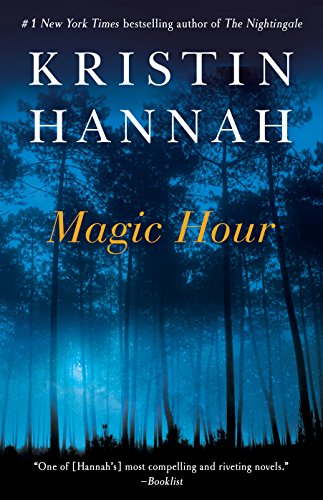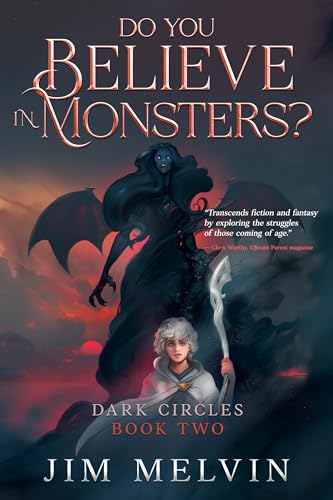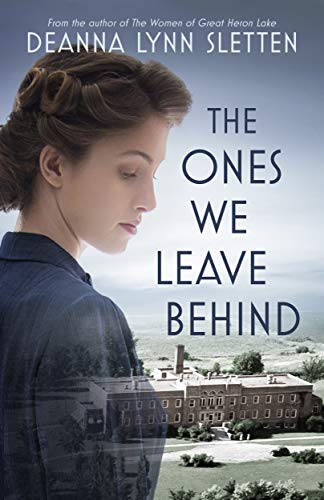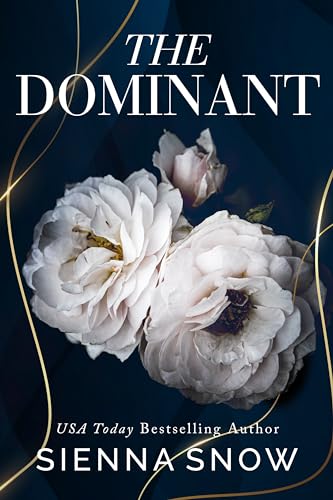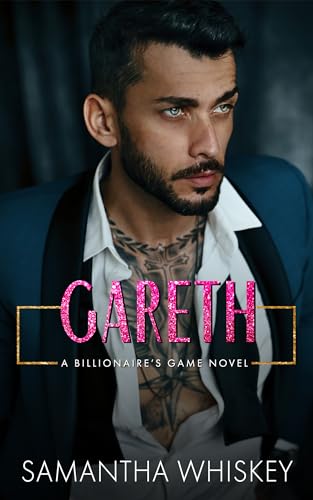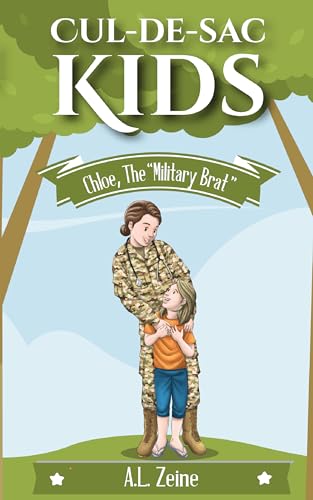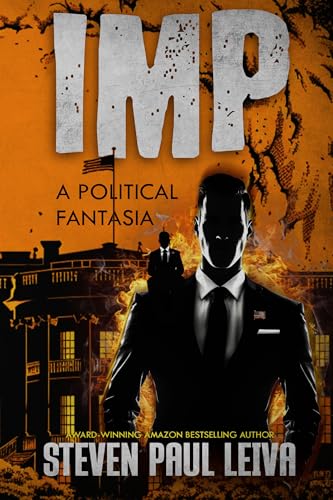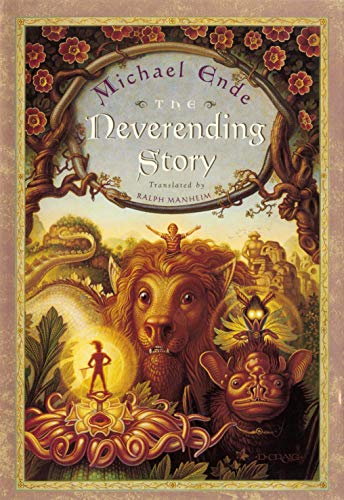Copyright 2010 by JTK Belle and reprinted here with his permission.
Querencia:
que·ren·cia
IPA: /ke’renθja/
f.
(acción de querer) fondness, affection
(instinto de los animales) homing instinct
(guarida) den, lair
(nido) nest, roost
colloquial (hogar) home, nest, a bullfighting bull’s favorite spot in the ring
Etymology: from the verb quere (to desire, to want).
“A bull’s querencia is the spot in the bullring where the bull feels safest. Each bull will find its querencia in a different place in the ring, though not uncommonly near the gate where it entered. As the bull tires from the fight, it will seek to return again and again to this comfort zone. The skilled matador will turn the bull’s querencia to his own advantage, luring the bull into a tenuous security before preparing for the final blow.”
–Book of Bulls: The Official Matador’s Handbook (2nd Ed)
“QUERENCIA IS THE MIRAGE OF A CORNER IN THE ROUNDNESS OF THE RING.”
Hernando
1.
Once, outside of Ulysses, Kansas, by the banks of One Hundred Mile Creek, near the source of the Pequot River, in a slanted sunflower field laid low by grazing cattle, a bull calf was born to the cow Esmerelda. The calf was large, much larger than one might expect from its humble lineage. Later, as the legend grew, they would say the bull calf was born with six-inch horns to the clanging of the nearby church bells. Or that it emerged smoldering from a ribbon of dry heat lightning. Or even that this was no bull at all, but the offspring of Indian elephant and Jersey dairy cow. These types of apocryphals will attach themselves to budding legends and gather details like a tumbleweed of untruth. But here now are the true and simple facts of this taurine tale.
Though large, the bull calf was born sickly, at the Plumpkin Ranch, and soon afterward, Esmerelda died of the bovine pox. The calf was milked with a bottle by attendant ranch hands and even by Plumpkin himself, who was a gentle soul and grew attached to the oversized calf, holding its head in his hands as it struggled to fill its lungs. Plumpkin injected the calf with antibiotics morning and night, and by its twentieth day, the calf was standing on its own, drinking full buckets of milk and devouring eight-pound bags of grain.
Its health restored, the ranch hands watched the bull grow, gaining pounds and inches by the day. By six weeks it reached twenty hands high. By ten weeks, it had outgrown the calving pen. By six months, it stood as tall as a plow horse. By two years, from horn to hoof, the animal towered over the smokehouse, its hulking frame casting a shadow that spread over the sunflowers from the meadow at the near side of One Hundred Mile Creek to the limestone bluff on its farther side.
The bull was named Son of Carleton after the seed bull, and the ranch hands came, with some irony, to call him by the diminutive Carlito, and then more often, and less ironically, Big Carl.
Cornelius Plumpkin calculated the poundage and counted the money in his head. Enough, he expected, to pay for an entire winter’s expenses.
When the day came-the day Big Carl was led to the slaughterhouse to be destroyed-the farmer took measure of his impending fortune with a mixture of wonder and remorse.
What a magnificent animal to have to pay for the winter’s bills, he thought. But what else to do?
The proprietor of the slaughterhouse was equally bemused by the giant bull, though he frowned when the chute scale crumpled under Big Carl’s weight. And so an agreement on the weight was made without an official recording.
Without a hint of fear, Big Carl walked the steps to the door of shed number five, where the stunner gun was loaded with bolts. The shot was fired. Big Carl did not fall. The stunner was reloaded, and another shot fired. Still standing, Big Carl tilted his head, eyed the stunner with innocence and suspicion, squinted. Two bullets now sat lodged in his head, above his left eye, beneath the root of the horn.
The stunner proceeded through the process, as he had done a thousand times, as it was always done before. He thrust his long knife forward to the carotid, where it scraped on Big Carl’s hide and swerved sharply sideways. Recoiling, the hand tried again, more forcefully this time. The knife snapped at the middle of the sheath and fell clanging on the tile floor.
This bull cannot be killed, the slaughterhouse man said.
The men stared at Carl and Carl stared back at them, by his sidelong look sympathizing with their confusion and disappointment.
With nothing else to do, the rancher led Big Carl back into the cattle truck and drove him home to the slanting sunflower field beside One Hundred Mile Creek, where the bull spent the following year idly grazing on bluestems and watching gently flowing waters pass between the limestone bluffs and press on down to the mighty Pequot River.
And then one day, a man arrived at Cornelius Plumpkin’s door.
I hear you have a large bull, the man said.
Yes, said Plumpkin.
A very large bull, the man said.
As big as a smokehouse, said Plumpkin.
The man introduced himself as Douglas Button, a rodeo promoter from Kansas City. Plumpkin led Button to the field where the bull stood on a rise, eclipsing the afternoon sun as the men approached. The closer they crept, the darker the sky became, until Button realized it was the shadow cast by the bull that enveloped the width of the sunflower field.
What a magnificent specimen, Button gasped. I’d like to bring him to Kansas City. To the rodeo.
He won’t buck, said Plumpkin.
He’s four thousand pounds if he’s a feather, Button said. He could lie on his belly in the shade and they’d still come from miles to see him.
Carl sensed them there. He was used to being spied. He sidestepped slightly and turned his head to see them, allowing the sun to rise slowly over the horizon of his shoulders. Button took in the enormity of the animal.
My goodness, he said.
In Kansas City, the crowds did come at first. Carl was less accommodating than Button had hoped. Without bucking, there was little other than Carl’s size to promote- no brave riders to draw a story line, no narrative to sell. They did not, in fact, come from miles just to see the giant bull sitting in the shade. The sums the rodeos were willing to pay declined in short order.
I have another idea, Button said to Plumpkin.
And what is that?
Bullfighting.
Bullfighting?
Think of the draw!
At the rodeo?
No, in Mexico. I know an agent in Mexico City.
And who would fight this bull?
Someone will.
He can’t be fought, Plumpkin said, shaking his head. He hasn’t the temperament. It would be futile. And one-sided.
Eventually, of course, the bull would fight. How else could it be? Yes, this bull would fight, in a way.
They said Carlos was bred to fight. Not true. Carlos was not bred to fight. Fighting bulls were bred for courage, which to the man with the cape is entwined with predictability. Knowing just how the bull will come to him is the only thing that stands between the matador and his death.
Carlos never knew fear to overcome. Courage was Carlos’s nature.
When a fighting bull’s courage is finally taken-when the bull is worn down by the toreros, exhausted and resigned to its fate in the ring-it will go to its querencia, that spot where the bull feels safest, where it will return, predictably, where the matador will have to lure him forward to deliver the final, fatal blow.
Carl possessed a calm that betrayed his querencia wherever he went. From Kansas to Ronda to Mexico City, Carlos the Impossible, as he would become known, would always find his querencia here, in a sloping sunflower field, beside the gently flowing waters of One Hundred Mile Creek, near the source of the Pequot River.
2.
Hernando despaired the new age of bullfighting: younger men (younger than he), without technique but full of bravado, fighting ever smaller bulls bred for ease in poorly orchestrated contests. Worst of all was the delegating, the wearing down of the bulls to the banderilleros. All while commanding enormous sums for fancy cape work and little more. Gone were the days of Arruza, his hero; Jamie Bravo, his mentor; and Manolete, oh Manolete!
Often he thought to himself, I am the last of a dying breed, the last of the true matadors.
When he was a younger man it mightn’t have bothered him, but Hernando was now thirty-five years old. And these younger men with their lesser skills were earning nearly equal his wages, a king’s ransom in this age, tricking uneducated crowds into believing them worthy of it.
Fighting bulls had made Hernando a rich man but cost him a marriage (a brief one, to a starlet of TV Azteca), the services of his agents and managers (none lasted more than a year), and countless friendships (hangers-on, who needed them?). Now the newspapers called him a ladies’ man, Don Juan; they said his emerald green eyes hypnotized the ladies and the bulls with equal rewards. But he was happier with the bulls.
Hernando eyed the crowd. Half of Mexico City it seemed was in attendance. The drunks in the sun seats huh-huh’d as the bulls stirred in their pens-the two matches before his had not satisfied their appetite for drama. They wanted only to see the master. Hernando, the Legend of the Fiesta Brava.
Truth be told, he despised them, mostly. He often complained to anyone listening that nine of every ten in the Plaza did not understand. They did not understand the tragedy that unfolded before their eyes, did not comprehend the noble act for its intentions. Did not appreciate the difference between a courageous bull and a difficult bull, did not award him ears or hooves based on anything more than a few flourishes of the cape and a few predictable passes.
Give me one-tenth the ticket sales, he would say, and forget the rest. We would all be happier.
Before each corrida, when he knelt to pray to the Virgin of the Macarena, he would genuflect casually and ask the Lady not for Her protection and a well-behaved bull with courage and broad shoulders, but only for a knowledgeable crowd and a windless day.
Hernando’s bloodline was spilled in the sand by a long family history of middling matadors. His great-grandfather, who was called El Gaucho, was known for his luck and recklessness until he was gored nearly to death by the bull Ozomatzin and became a shoemaker in Aguascalientes. His grandfather El Zapatero was killed by the blue roan Zorrito, which his father Juan then had beheaded and mounted above the television in the family home where it stared down over Hernando’s truculent youth like a mounted Siren calling the boy to the bulls. Juan, who went by El Pescador, fought for fifteen years, first as a picador, then in ferias in the south, then in the bloodless fights for the cruise ship tourists in Baja, before retiring to the guava orchards of Ronda.
From a young age Hernando was possessed of a seriousness, an artfulness, not conferred by the Ages on his lineage. He was, they said, touched by the Taurine Fates, raised up from mediocrity by the angels of the corrida. Even now, at the sunset of his great career, these expectations weighed on him, punctuated his every victory with a lingering question mark. How much closer to the horns can you go? How many ears, hooves, and tails are enough? What more can you give them before bravery turns to foolishness and luck turns cold? Who can outrun the horizon?
It is true, the story they tell, that in his youth he fought two bulls at once. This was during the Feria de la Exuberancia Juvenile after a poor season when he felt the need to do something grand, something to redeem his lesser efforts of the year before. Now in the towns around Ronda, where he was born, they will look you in the eyes and tell you he stood in their very plaza de toros with ten bulls at once, and tell you they were blessed to witness it. What bravery, what honor! Hernando!
He would earn ninety thousand pesos for this fight. More and more, he found himself alone in the ring with the bull, thinking not of the preparations, or the pacing of the veronicas, or the tendencies of the bull as it came at the cape, but of his newest home in Zihuatanejo, high on a bluff overlooking the warm Pacific. Another year of this, another house. The next one in Cabo San Lucas, possibly a penthouse in the city. Granite countertops in the chef’s kitchen. Parquet flooring…
In his prime-and the drunks in the sun seats would argue he was past it-he would have chased these thoughts from his mind in an instant to concentrate only on the bull. But after twenty years in bullfighting plazas from Tijuana to Cozumel, he sensed that he was growing bored. The challenge was diminished. His stature was assured. Perhaps, just perhaps, it was time to-
The bull charged out from the callejon and through the gate confidently. Smoothed sand kicked up under its hooves. This one was a fine animal. From the famed Don Fausto Meza breeding ranch in Tlaxcala. Full of courage and, his men assured him, this bull galloped straight and true as a train on rails. Perhaps a little smallish, but thick-necked, broad-shouldered, with horns spread wide and curved forward. His glassy pelt waved over sun-drenched muscle and shimmered in the afternoon sun.
Hernando’s focus returned, his senses heightened. The old instincts flooded back; he smelled the carnitas of the vendors walking the tendidos, heard the horses’ quickening breath and the peanut shells hitting the dusty floorboards, saw the presidente of the Plaza whispering to his companion in the owner’s box, as the late afternoon sun faded through the thin breeze, raising the shaven hairs on the back of his neck.
Through the First Act, Hernando critiqued the work of the peónes who ran the bull about, waving capes and testing the animal’s bearings. Fine, thought Hernando, nothing peculiar with this one. As the picadors approached on horseback, the bull pawed at the sand, then charged. With a thud, the Tlaxcalan put his left horn up into the padded belly of a picador’s horse. The horse sidestepped, and then fell. Shuffling peónes with a thick black tarp quickly covered it over. After this, the picadors had little difficulty, wounding the snorting Tlaxcalan with several sharp thrusts of the lances into the thick muscle between the shoulders.
In the Second Act, Hernando, full of theatrics, set the banderillas himself, jumping, stabbing deep into the shoulder muscle with two heavy fists, then dancing away to the delight of the crowd. The colorful sticks bobbed from the animal’s back and fell at its flanks as it skipped forward, snorting and coughing in the direction of the great matador who walked on his toes, head high, back turned, hand on hip, away from the wounded bull.
By the Third Act, the bull had slowed, its head held low, drooping, its bulging shoulder muscles exposed, nearly spent but not yet ready for the sword.
Each pass yielded a thunderous Olé! The bull passed, galloping more slowly, but required little goading.
Olé!
Another pass. And another.
Olé!
Olé!
Hernando stood, feet together, pulling the muleta back gracefully, as the bull’s horns glided past his navel. The Tlaxcalan slowed further still, and retreated toward the gate on the far side of the ring, seeking what Hernando called “that mirage of a corner in the roundness of the ring”: its querencia.
Hernando paused for the benefit of the crowd.
Take him, Hernando!
He’s ready, Great One!
Hernando allowed the bull to gather its courage-he sensed the bull preparing itself for the denouement. He pushed the muleta forward, slowly, clicking his tongue. He waited patiently, pulling gently again and again at the smaller cape, allowing the calls from the crowd to grow louder.
This will earn him a tail, he thought. His third of the season.
The bull lunged. Hernando stood on his toes and presented the sword with his signature arching of the back (they called this “the Hernando”), before he stepped forward and plunged the sword high between the shoulders of the exhausted bull. With a snort, the animal fell to its knees and collapsed forward, a little fountain of blood rising from its back and spilling into the sand as Hernando leaned-to and spread his arms like winged victory, and the crowd erupted with chants of his name.
After the corrida, Hernando and his men retired to drink tequila at Café La Mancha and discuss the day’s events.
The matador was asked by a peóne about the other fighters of the day. Hernando was reluctant at first, but he had been drinking double shots, and when his tongue is sufficiently loosened he cannot stop it from betraying his true thoughts.
What did you think of Ordonez today, matador? the peóne asked.
Ordonez? the matador huffed. Without flair, and he knows nothing of bulls. Did you notice how he went to the bull in its querencia? Sheepish. Like a schoolboy to a spanking.
And Jimenez?
Technically competent, but cowardly at times. Terrible with the kill. He will soon need a longer sword to reach the bull!
This went on. Names of other matadors of the day provided, Hernando responded quickly, batting back each name with candid derision.
Tito Suarez? A bore.
La Rosa? Awkward, angular, like a cactus with happy feet.
Villacorta? He dances like a chicken.
Diego Caron? Brave, I suppose, but stupid. He will be dead inside a year.
And how do you rate your performance today, matador?
Hernando paused and considered the question with a frown.
Average, he finally replied, with a casual wave of the hand. The bull today was on the small side for my liking. They are bred too small these days. Breed them larger, I say. We will see who remains in the ring then. There is not a bull alive I cannot handle.
Hernando’s words hung in the air. The peóne squinted and turned the tequila bottle in his hand.
I’m sure that is the truth, the peóne said slowly. And since it is, there is something you should know.
Yes?
There is a bull fighting in the south.
Fighting? If you are a bull you fight only once.
Jaripeos, the peóne said. And street fights. All manner of amateurs. They say he ran the Humanatlada, then fought in Sincelejo the following day. I understand he is now running in the capeas in your hometown of Ronda. This bull has fought ten times and killed thirty-nine men.
Ten times? What do you take me for?
It’s true. They say he is as big as a cathedral.
Ha!
And made of stone.
There is no such bull.
They say the earth moves under his hooves.
Do they?
I assure you, it’s quite true. This comes from Caron’s men.
Caron?
Yes. He intends to fight the bull. He says the capeas of Ronda are no place for such a beast. I’m sure you’ll agree. Diego Caron is in negotiations with the owner of the bull. He will promote him to the Plaza and kill him honorably.
Caron is a child and a cape waver. If this bull is as difficult as you say, he will be gored before the trumpet blows.
I tell you, jefe, he is a beast. This bull is invincible.
A week passed. The stories filled Café La Mancha nightly, passing from table to table, the tumbleweed growing larger. -This bull they call Carlos fights in the capeas. Have you been to Ronda to see? -No, but he killed a cousin of my wife. They say he took off and swallowed the poor bastard’s arm. -And still the bull lives? -He goes on fighting, he can’t be killed. -He’s tall as an elephant, with a hide twice as thick. -Did you hear? Diego Caron has been to see him, he intends to bring him to Mexico City. To the Plaza.
Another week. More stories of the giant bull passed through the smoke-filled cantina. -Caron has been to Ronda. -And? -They say he is having second thoughts.
When Hernando had heard enough of Caron’s name fl

, is a sort of love story: part tall tale, part sad, sly amusement, and part subtle, comic fable – all rolled together in the narrowing distance between a man and a bull.

